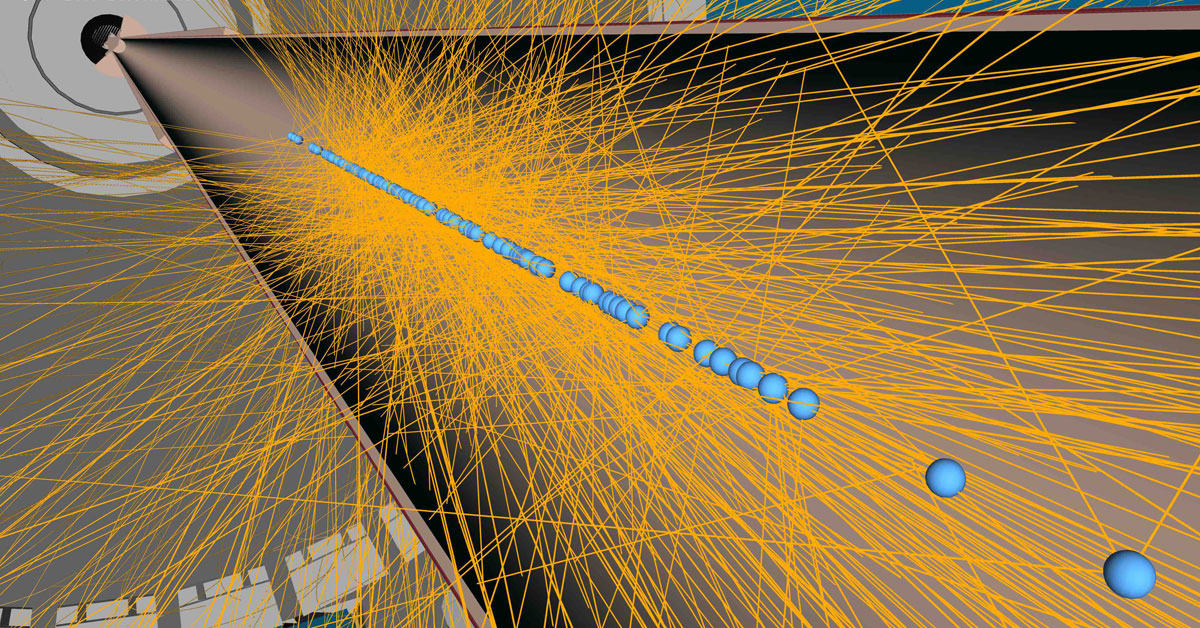UC Irvine joins effort to train next-gen physics workforce

Simulation of a proton-proton collision event in the ATLAS detector at the Large Hadron Collider (LHC) in Europe.
The University of California, Irvine Department of Physics & Astronomy is part of a new $3.2 million consortium funded by the U.S. Department of Energy’s Office of Science. The aim of the consortium is to train the next generation of computational high-energy physicists.
The consortium, Western Advanced Training for Computational High-Energy Physics (WATCHEP), brings together six public universities and three national laboratories to create a tailored modular curriculum offering intensive research opportunities during a two-year training period for graduate students.
The training areas are hardware and software co-design, collaborative software infrastructure and high-performance software and algorithms.
“As physics and astrophysics experiments collect more data for high-precision measurements, researchers have come to depend on large-scale computing infrastructure and high-performance computing algorithms,” said Anyes Taffard, professor of physics and the Principle Investigator for the UCI part of the consortium. “Many collaborations have dedicated experts in advanced computing technologies who are also experts in particle physics.”
Taffard and UCI’s Professor Daniel Whiteson are particle physicists and experts in all three areas. They are directly involved in hardware and software co-design, high performance algorithms and machine learning.
“The future of science relies on individuals that are proficient in both science and cyberinfrastructure”, Taffard said. “This program aims to develop the skilled workforce essential for future scientific advancement. Our team will equitably help in selecting and mentoring trainees in cutting-edge research projects to create future ‘computing ambassadors,’ with experience and expertise in high-energy physics and competencies that extend well beyond our field.”
In a previous announcement, the DOE Associate Director of Science for High Energy Physics Regina Rameika said: “Future high energy physics discoveries will require large accurate simulations and efficient collaborative software. These traineeships will educate the scientists and engineers necessary to design, develop, deploy, and maintain the software and computing infrastructure essential for the future of high energy physics.”
Along with UCI, the consortium;s participants include UC Berkeley; UC Santa Cruz; UC San Diego; Oregon State University; University of Washington; Brookhaven National Laboratory, Fermilab; and Lawrence Berkeley National Laboratory.
